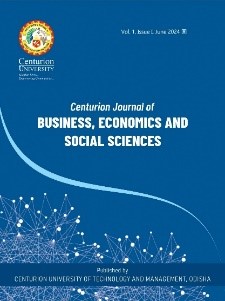2.1.14 Judiciary 2.0: Transforming The Future of Justice Through E-Courts and Virtual Hearings
Girish Ranjan Sahoo,
Senior Assistant Professor, School of Law, CUTM Bhubaneswar, Odisha
Srutakirti Panda,
Ph.D. Research Scholar, Faculty of Legal Studies, SOA National Institute of Law, Siksha ‘O’ Anusandhan (Deemed to be University), Bhubaneswar, Odisha, India
Khuku Milan Choudhury,
Ph.D. Research Scholar, Faculty of Legal Studies, SOA National Institute of Law, Siksha ‘O’ Anusandhan, Bhubaneswar, Odisha, India
DoI: CJBES/ Vol.2.1/ June-2025…
Abstract:
The advent of the digital revolution has profoundly influenced numerous sectors, including the judiciary. The incorporation of digital technologies within the judicial framework denotes a significant evolution in the administration of justice, enhancing accessibility, efficiency, and transparency. The transition from conventional courtrooms to digital platforms has been characterized by the researchers here, as the beginning of the judiciary 2.0 era. The implementation of e-courts and virtual hearings has fundamentally transformed traditional judicial processes by enhancing case management efficiency, curtailing delays, and facilitating remote participation. Nonetheless, such transition introduces several challenges, such as concerns regarding data privacy, digital literacy, the preservation of procedural fairness, and the reformation in legislative frameworks to govern online judicial processes. The development of e-courts and virtual hearings represents not merely outcome to modern challenges but rather a progression toward more robust and inclusive judicial structure. This research critically analyses the evolution of Judiciary 2.0, assessing its effects on due process, and the autonomy of the judiciary. This study assesses the efficacy of virtual hearings, particularly in the wake of the COVID-19 pandemic, which necessitated a rapid digital transition in court proceedings. It also seeks to examine international best practices and legal advancements, with the objective of offering insights into the future of digital justice and proposes recommendations for the efficient and fair implementation of e-courts and virtual hearings. This study highlights that although Judiciary 2.0 presents significant potential for the modernization of legal systems, its effectiveness depends on a measured strategy that protects due process and fundamental rights while integrating technological innovations. The findings aim to contribute to the ongoing discourse on the future of digital justice and the role of courts within a progressively virtual environment.
Keywords:
Cybersecurity, Digital transformation, E-courts, Judicial efficiency, Technological advancements, Virtual hearings.

